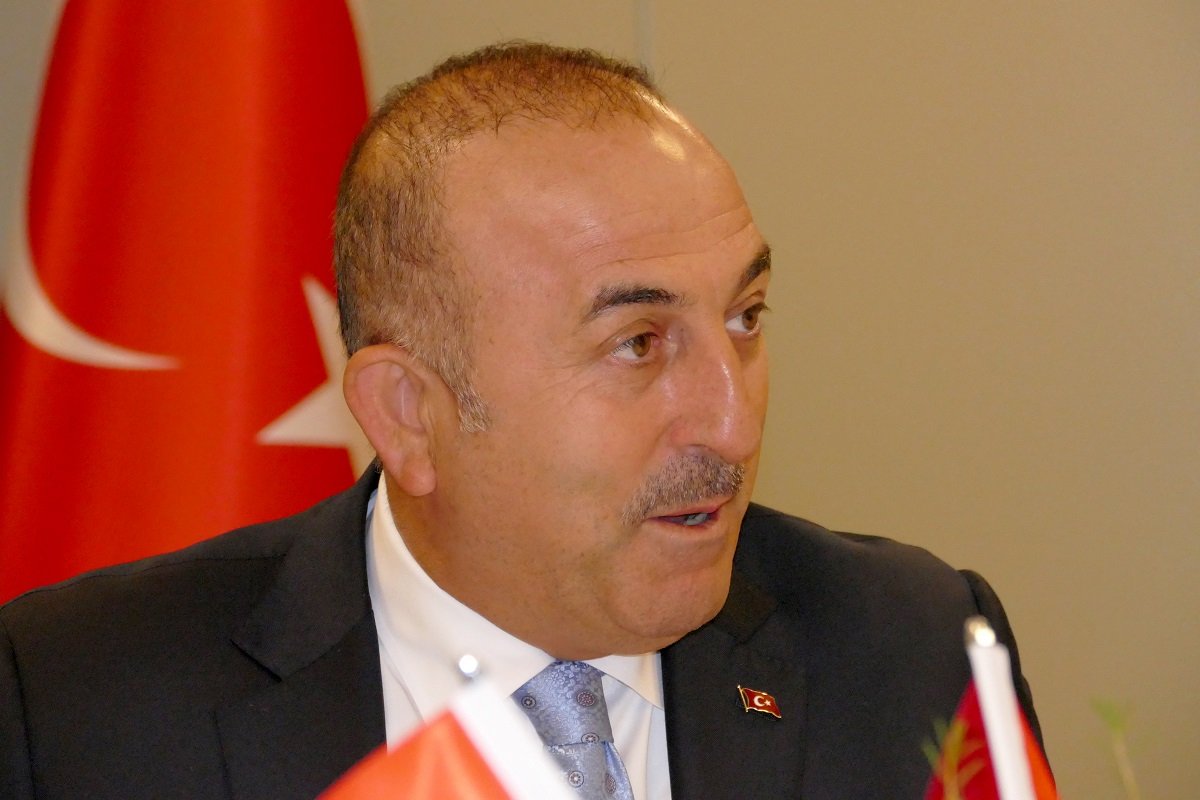Turkish Foreign Minister Mevlüt Çavuşoğlu on Monday said European countries have been using journalists as spies in Turkey.
“A new trend has recently started in Europe. Secret services in particular have started to use journalists as agents in Turkey. Why? So they can argue that ‘Journalists are arrested,’ ‘Journalists are jailed,’ when they are detained,” said Çavuşoğlu in response to a question about German journalist Deniz Yücel, who has been in jail in Turkey since Feb. 14, during a joint press conference with his German counterpart, Sigmar Gabriel, in Ankara.
Çavuşoğlu said Yücel is an issue for the judiciary.
President Recep Tayyip Erdoğan accused Yücel of being a German agent and a representative of the terrorist Kurdistan Workers’ Party (PKK) on many occasions.
“In the past few days another journalist from another country was detained. He took photos of our military bases and top secret places and shared them after crossing into Iraq. When we started an investigation into him, they said ‘How can you arrest a journalist?’ You can react if he was detained for journalistic activities,” added Çavuşoğlu.
French photojournalist Mathias Depardon was detained on May 8 after photographing the local scenery in Turkey’s southeastern Batman province, has been waiting to be deported in the Gaziantep Immigration Authority in the Oğuzeli district of Gaziantep.
Depardon was accused of disseminating the propaganda of the outlawed Kurdistan Workers’ Party (PKK) on social media.
French President Emmanuel Macron on Saturday urged Turkish President Recep Tayyip Erdoğan to release Depardon.
Pressure on foreign journalists in Turkey has been mounting in recent years, with the government, pro-government journalists and government trolls on social media directly targeting them.
On April 9, Gabriele del Grande, an Italian journalist working for the ANSA news agency, was detained during a security check in the southern province of Hatay. He was released by a Turkish court on April 25.
Del Grande was interviewing Syrian refugees for a book he is writing about the war and the rise of the Islamic State in Iraq and the Levant (ISIL).
Last November another French journalist, Olivier Bertrand, was detained in the southeastern province of Gaziantep and deported three days later following the diplomatic efforts exerted by Paris.
In the last days of 2016, Wall Street Journal correspondent in İstanbul Don Nissenbaum was held incommunicado for over two days for tweeting about an alleged soldier burning by ISIL.
In January The New York Times reported that Turkey denied entry to one of its veteran reporters, Rod Nordland, at İstanbul Atatürk Airport, with no reason offered by officials as to why he was not allowed to enter the country.
Yücel, who works for the German Die Welt newspaper and has been kept in pre-trial detention in Turkey since Feb. 27 as part of an investigation for publishing stories on the leaked emails of President Erdoğan’s son-in-law and Energy Minister Berat Albayrak, was arrested by a court on Feb. 27.
In April, the Turkish government refused to renew the press accreditation of German Stern magazine reporter Raphael Geiger due to alleged remarks insulting Erdoğan.
Journalists Frank Nordhausen and Nick Ashdown were targeted by pro-government trolls and media for their tweets reporting on twin bomb attacks in İstanbul immediately after they occurred on Dec. 10.
“Shameless, immoral, treason,” said President Erdoğan of an article by New York Times reporter Ceylan Yeginsu about the recruitment of Turkish citizens by ISIL.
After CNN’s Ivan Watson was detained during a live broadcast from the Gezi Park protests in Istanbul in 2013, Erdoğan accused him of “working like a spy.”
Erdoğan also went after the Economist’s Turkey correspondent, Amberin Zaman, for her remarks on a TV show: “Shameless militant disguised under the name of a journalist.”
Selin Girit, a host on the BBC’s Turkish service, was another journalist targeted by Erdoğan, who said, “Part of a conspiracy against her own country.”
Two Swedish journalists were also temporarily detained by police in November in the Kurdish southeastern province of Diyarkabır.
Lindsey Snell, an American freelance journalist detained by Turkish security forces on Aug. 7 as she crossed into Turkey from Syria and accused of having illegally entered a restricted military zone, was released in October after two months’ detention in Turkey.
Finnish journalist and writer Taina Niemela was deported from Turkey in April on charges that she had been involved in “spying activities.”
Turkey is the leading jailer of journalists in the world. The Stockholm Center for Freedom (SCF) has documented that 264 journalists are now in jails as of May 27, most in pre-trial detention languishing in notorious Turkish prisons without even a conviction. Of those in Turkish prisons, 241 are arrested pending trial, only 23 journalists remain convicted and serving time in Turkish prisons. An outstanding detention warrants remain for 105 journalists who live in exile or remain at large in Turkey.
Detaining tens of thousands of people over alleged links to the movement, the government also closed down more than 180 media outlets after the coup attempt. (SCF with turkishminute.com) June 5, 2017









